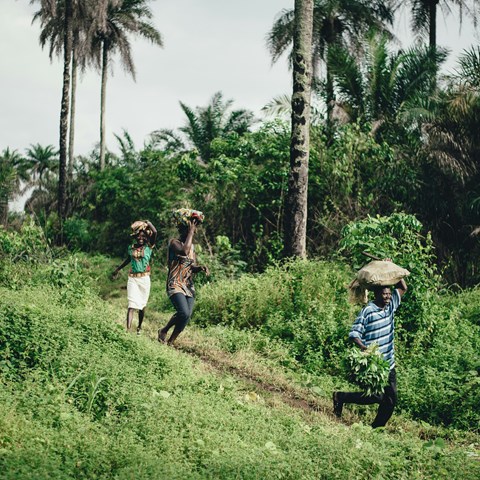Contact
Department of People and Society

In Sierra Leone, the key transition challenge identified in collaboration with the government is ensuring that the Feed Salone strategy contributes to healthy and nutritious diets for the population.
Indeed, malnutrition remains a critical issue in Sierra Leone, where stunting and acute malnutrition rates still affect 26.2% and 5.1% of children, respectively, while anaemia affects 48.4% of women. Dependence on staple foods like rice and cassava, combined with poverty and high food costs, limits dietary diversity. As a result, 27% of the population have poor diets.
In each of the three pilot countries covered by the Sustainable Agri-Food Systems Intelligence- Science-Policy Interface (SASi-SPi) project, we aim to support the transition towards more sustainable and more inclusive national agri-food systems. To do so, we focus on a specific transition challenge at the territorial level, with a bottom-up participatory approach.
Between September 30th and October 11th, 2024, the Agrinatura team conducted its second mission in Sierra Leone. A series of meetings and consultations were held in close collaboration with the government of Sierra Leone - in particular the Scaling Up Nutrition (SUN) and Food Systems Secretariat within the Office of the Vice-President - and the EU delegation.
The mission engaged with national and district-level authorities and research institutions, as well as NGOs, and farmers' organisations in Kenema and Port Loko districts, the two selected territories where the action research on the earlier-mentioned food system transition challenge will be carried out. Meetings with the district level actors contributed to a preliminary territorial diagnosis, highlighting key agricultural and market practices that are part of the local food systems. The mission was also the opportunity to explore collaboration with the Sierra Leone Agricultural Research Institute (SLARI) and discuss synergies with their research initiatives.
The mission revealed strong stakeholder interest in addressing the identified food system challenge. Meetings with district-level authorities, NGOs and farmer organisations underscored the importance of grassroots engagement to identify actionable solutions. Furthermore, stakeholders acknowledged the relevance of ensuring the Feed Salone strategy contributes to healthier diets. Local markets, food processing centers, and farming practices observed during the mission offered valuable insights into district-specific needs.
Moving forward, the Agrinatura team will finalize a detailed methodology for data collection in Kenema and Port Loko districts.
The next mission is planned in February 2025.
Overall, this mission was successful in fostering links with policymakers, researchers, and local stakeholders, in preparation of building a common vision to promote healthier diets through the national Feed Salone Strategy
For more updates on the SASI-SPI initiative in Sierra Leone and opportunities to partner in transforming food systems, stay connected with us.